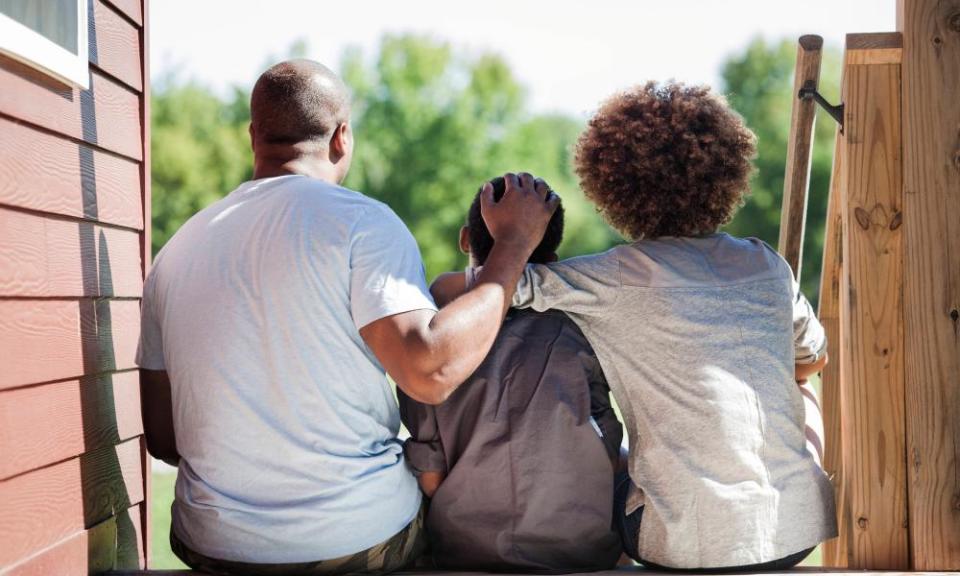‘We could provide a place for children to thrive’: the drive for more local foster carers in south London

Francis and Helena Dadson never know how many places to set for Christmas dinner. Every year, there is a hungry crowd squeezed around the table of their family home in Sutton. “There’s an open invitation to the children we have fostered to join us. Some get in touch to ask if they can come for Christmas and others might just pop in for dinner,” says 59-year old Francis. “For me, that’s where the fulfilment comes in being a foster parent.”
The busy Christmas table speaks volumes to the success of the fostering partnership developed between the Dadsons and their local Sutton council over the past 14 years.
During that time the Dadsons have shared their home with 10 foster children – all teenagers. Most arrive aged 13 and leave when they are 18. “Teenagers come with their own misconceptions about fostering, about what they can and can’t do, based on information they have picked up from various sources,” says Francis. “We try to reassure them and make them understand that we’re not here to replace their parents. What we are trying to do is give them a level of stability to help them achieve what they want to achieve.”
Currently, 50 of the 212 children in the care of Sutton council are placed in foster homes provided by the council’s in-house service – the remainder are either in residential care or are placed into foster homes through private fostering agencies. This can be an expensive option, with children ending up in foster placements outside the borough and away from their established networks.
The council wants to expand its in-house fostering service and find more local people to become foster carers, because of the benefits of keeping children local. But it is also looking to boost numbers as it expects to see a rise in the number of children coming into care as the lockdowns start to ease.
Becky Taylor-Hall, fostering recruitment and engagement manager at Sutton council, expects to see an increase in the number of looked-after children once life goes back to normal – triggering a need for more foster carers. She predicts teachers will start to refer more children to social services as they return to the classroom and more families will turn to the council because of the challenges caused by the pandemic. “We need to be prepared for that,” she says.
Dispelling the myths around looked-after children and what it takes to be a foster carer are key to the success of the council’s recruitment campaign, says Taylor-Hall. “I think people still have this old school belief that children are in care because of their behaviour. But that’s not the case – they are in care for a multitude of reasons,” she explains. “I also think a lot of people think they have to have really significant special skills to be a foster carer. But that’s not the case. It’s just about typical parenting skills, and when challenges do occur we are there to support them.”
Foster carers can expect to be well looked after by Sutton. They undergo a six-month assessment and are given core training to prepare them for the role. Topics include what to expect as a foster carer, information around child development and the impact of trauma, fostering law, and how to prepare for your first placement. There is a local network of support groups and forums to help new foster carers as well as those with more experience facing fresh issues. Each new foster carer has an experienced foster carer mentor and is allocated their own supervising social worker.
“When we text or email our supervising social worker she gets back to us within a couple of hours,” says Francis. Foster carers are also expected to complete 30 hours of training a year to keep their skills and information up-to-date. A fostering allowance and placement fee is also paid to help cover the costs of looking after a child. In Sutton, the current payment is between £400 and £500 a week. But Francis, a freelance financial consultant, cautions: “The money is useful because it helps pay the bills, but if the money is your underlying objective then fostering isn’t for you.”
So what was it that attracted Francis to fostering? “These children are coming from an environment that was not of their making. We felt we could provide a place for them where they could thrive,” he says. And his advice for others interested in becoming a foster parent? “You have to be caring and be mindful of where these children are coming from – it’s not their choice to come into care. But if you are committed to them and help them achieve their ambitions, that’s where you will reap the rewards.”

 Yahoo Finance
Yahoo Finance 